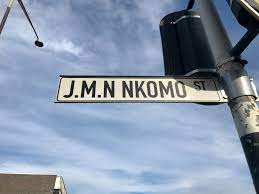ZAPU is supporting the City of Bulawayo’s clean city campaign by pledging litter bins to be installed on streets named after icons of the liberation struggle.
The opposition party is currently working on a sample of bins to be donated to the city, saying the focus following the elections should be on service delivery rather than political bickering, considering that Zimbabwe has recorded cases of Cholera, necessitating the need for cleanliness.
“The tragedy of Zimbabwe is the unending political bickering when we should be focusing on services after elections. ZAPU is now focusing its energies on services as we roll out our clean cities initiative in support of our metropolitans, municipalities and public institutions,” said ZAPU national spokesperson, Msongelwa Ndlovu.

Ndlovu said ZAPU has engaged Bulawayo Mayor, David Coltart, to donate litter bins to be installed on streets named after the icons of liberation heroes.
“This initiative will begin with Bulawayo, then Harare and Parirenyatwa Hospital. Our focus is on the symbolism of keeping the streets named after our icons clean more than the symbolism of associating them with litter bins,” said the national spokesperson.
“We appreciate the cooperation from the Citizens Coalition for Change (CCC) in Bulawayo Province and all our councillors.”
The national spokesperson said defeating Cholera required a collective approach by all stakeholders to take steps in promoting cleanliness and proper sanitation.
“We’re hearing of isolated cases of cholera around the country and ZAPU feels we should proactively mitigate this before it affects our communities. We’re also aware of the dilapidated health sector and considered the fact that we’re approaching the rainy season where cholera can spread rapidly,” Ndlovu said.
“In Bulawayo, we also seek to complement the efforts of the Mayor in cleaning the city.”
Since late last month, Zimbabwe has recorded 100 suspected cholera deaths and over 5 000 possible cases, forcing the government to impose restrictions to halt the spread of the disease, including limiting the number of people attending funerals and prohibiting some social gatherings in affected areas.

